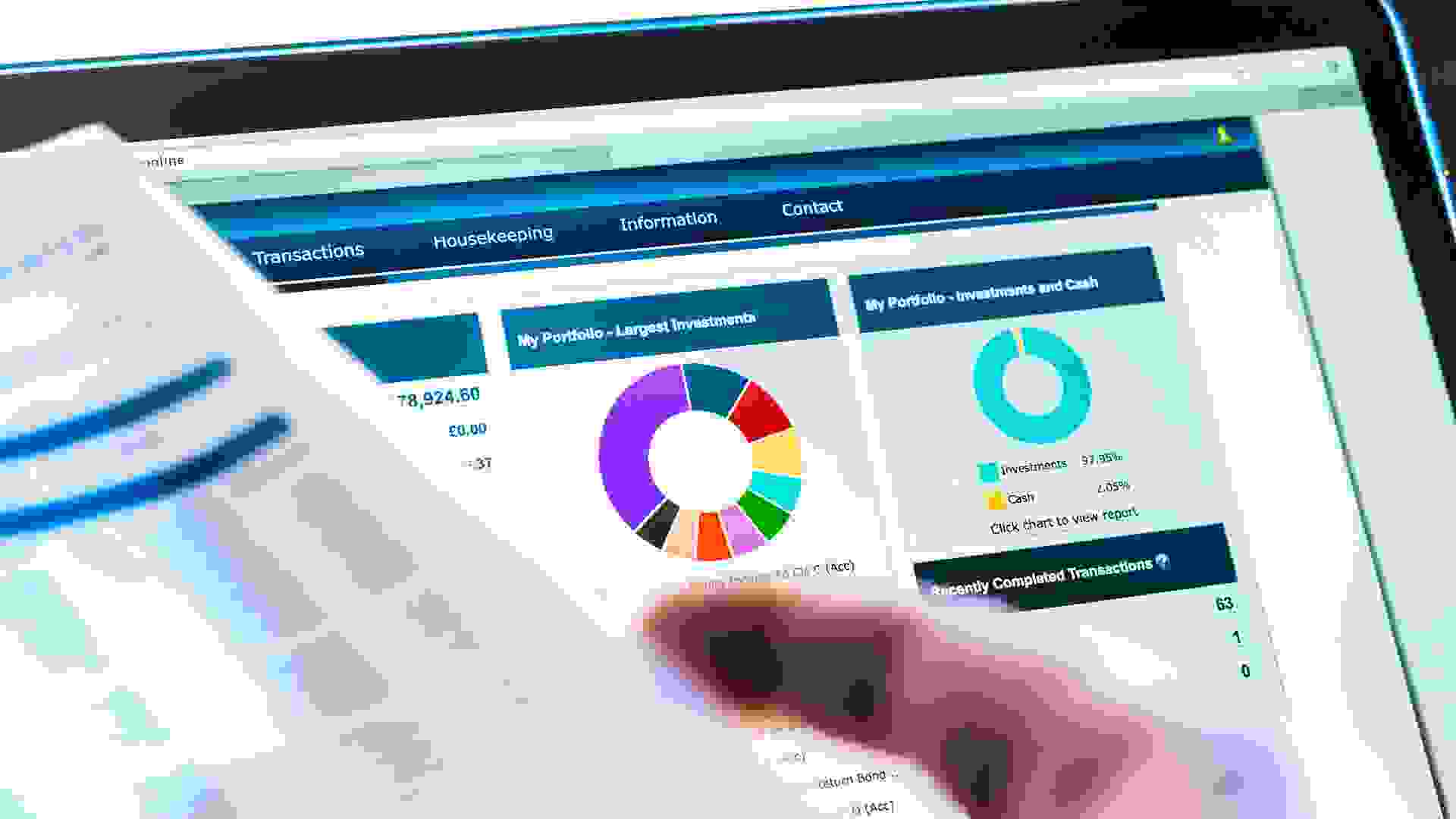Where You Should Move To Make The Most Money: America's Superstar Cities
The Top Money Moves To Make for Each Generation
Each generation has their own financial needs.


Gen Z, iGen or Centennials: Born 1997-TBD

1. Build Good Financial Habits Now
"For Generation Z, building smart financial habits is essential, and can make a big impact over the course of your financial life," said Marcy Keckler, vice president of financial advice strategy at Ameriprise Financial. "This includes being committed to making timely payments on any debts like student loans, so you can build a strong credit score. It's also important to learn to live within your means — avoid taking on credit card debt to cover discretionary, lifestyle expenses."
Find Out: Biden Wants To Shut Down Credit Bureaus – What Would That Mean for You?

2. Start Saving For Retirement
Retirement may seem like it's a long way away (and, let's be honest, it is if you're a member of Gen Z), but it's definitely not too soon to start saving for it.
"Make sure you are contributing to an employer-sponsored 401(k) plan if one is offered," said Brian Walsh, Jr., senior financial advisor at Walsh & Nicholson Financial Group. "If you are living with your parents, contribute as much as possible, which is $19,000 per year. Save now because you will need it in a few years!"
Check Out: Costco and 23 More Companies With Surprisingly Great 401(k) Plans

3. Start Investing
You may also consider opening an investment account in addition to your retirement account.
"The earlier someone can start investing the better," Keckler said. "Generation Z has time on their side, and the power of compounding is a huge advantage that comes with that. Compounding is the ability of an investment to generate earnings that in turn generate their own earnings, and can result in a lot more than the amount you're actually investing."
Index funds are a good choice for those who are new to investing, said Robert R. Johnson, PhD, CFA, professor of finance at the Heider College of Business, Creighton University.
"People in their 20s should begin investing in a low-fee, diversified equity index fund and continue to invest consistently, whether the market is up, down or sideways," he said.
Read: 9 Successful Money-Making 'Schemes' That Are Actually Legal

Millennials or Gen Y: Born 1981-1996
If you're a millennial, you are likely secure in your career path and are now focused on other major life events, like starting or expanding a family, buying a home or paying off any remaining student loans. Here are the best money moves for you.

1. Find the Best Plan for Paying Off Your Student Loans
"If you still have student debt, working with an advisor can help you pay it off faster through debt repayment plans that the advisor specializes in," Walsh said.
Find Out: How Much Debt Americans Have at Every Age

2. Be Aggressive About Paying Down Your Other Debts
"When you're in your late 20s and early 30s, this is the time to make sure you are aggressively paying down any non-mortgage debt," said Amin Dabit, CFP, vice president of advisory services at Personal Capital. "If you still have high-interest debt, you may be earning 8% in your retirement account, but might be paying 20% or more in credit card interest."
Economy Explained: How To Calculate Your Debt-to-Income Ratio

3. Increase Your Retirement Contributions
"The next time you get a salary increase or bonus, dedicate some of it to retirement savings or other investments – before you get used to having the extra money," Keckler said. "And if your employer's retirement plan offers an automatic increase option, consider signing up for it to put savings increases on autopilot, with annual step-ups in your contribution rate."
Important: How To Protect Your Retirement Savings During the Coronavirus Pandemic

Generation X: Born 1965-1980

1. Start Setting Retirement Plans and Goals
"With retirement becoming a closer reality for Generation X, those in this generation should have a clear vision of their retirement dreams and goals," Keckler said. "If you haven't already determined how you'd like to spend your retirement and how much you'd need to fund this chapter of your life, now is the time to do this."
A financial professional can be especially helpful in this phase of life.
"Now is the best time to sit down with a financial advisor to see if you are on track to retire when you want and adjust your savings to meet those goals," Walsh said.
Be Aware: 17 Biggest Budgeting Mistakes You're Making

2. If You Haven't Been Disciplined About Retirement Savings in the Past, Start Catching Up
"When you hit your 50s, you become eligible to make larger contributions towards retirement accounts. These are called 'catch-up contributions' – make sure that you take advantage of them," Dabit said. "Catch-up contributions are $6,500 in 2021. So if you contribute the annual limit of $19,500 plus your catch-up contribution of $6,500, that's a total of $26,000 tax-deferred dollars you could be saving towards your retirement."
Read: 27 Best Strategies To Get the Most Out of Your 401(k)

3. Be Prepared for the Unexpected
"You've worked hard to build a smart saving and investing strategy, but unexpected events such as an illness or job loss can derail your future if you're not prepared," Keckler said. "Make sure you protect your assets with the right insurance coverage and a cash reserve to give you flexibility to handle whatever comes your way."
Be sure to have an emergency fund with three to six months of living expenses saved up, just in case.
See: 101 Easy Ways To Save Money Daily

Baby Boomers: Born 1946-1964
Baby boomers are likely either newly retired or getting ready to retire, so the moves you make now are critical to being able to enjoy your golden years. These are the top money moves to make.
Watch Out: 40 Money Habits That Can Leave You Broke

1. Have a Set Retirement Plan in Place
"By your late 50s or early 60s, you should have a better idea of what retirement could look like for you and what it really means for you to be 'retired,'" Dabit said. "Do you want to keep working as long as you can? Would you like to slow down? What are your Social Security benefits and when is the optimal age to start taking them? Are you eligible for spousal or survivor benefits?"
"Once you reach age 65, there are still several considerations for your retirement, even if you are no longer working and accumulating wealth," he continued. "Some of these include making decisions about Medicare, creating a plan around withdrawing money from your retirement accounts and evaluating any additional insurance needs."
Check Out: The 8-Step Plan To Achieving Financial Freedom

2. Have 1-2 Years of Necessary Income as Liquid Assets
"If you are just retired or getting ready to retire, make sure you have one to two years of necessary income in cash or short-term bonds," Walsh said. "With equity valuations and bond prices at all-time highs, make sure you protect your portfolio. Having one to two years of necessary income in liquid, conservative investments will allow you to retire on time and give your portfolio time to rebound in the event of a market correction."
Be Prepared: 7 Major Emergencies That Could Bankrupt You

3. But Don't Be Too Risk Averse
"While you should consider investing more conservatively as you age — since you have less time to recover from market downturns — be careful about shifting your investment portfolio to become so risk-averse that inflation eats away at your future purchasing power," Keckler said. "Growing life expectancies mean your retirement could last 30 to 40 years, and maintaining some exposure to growth-oriented investments can help your money last."
Read: 12 Essential Money Tips for Every Phase of Your Financial Life

Traditionalists or Silent Generation: Born 1945 and Before

1. Check Your Asset Allocation and Withdrawal Strategy
Once you're in retirement, the "set it and forget it" approach is not the best way to make sure your portfolio mix and withdrawal plans are working for you. You should revisit your asset allocation and withdrawal strategy regularly.
"With the equity markets continuing to post new records, there is a good chance your equity to fixed income ratio is improper," Walsh said. "Make sure you re-balance to an appropriate allocation based on your risk tolerance and financial goals."
Find Out: 20 Investments That Are Recession-Proof

2. Mitigate Any Risk in Your Portfolio
While changes to asset allocation should be based on your own personal risk tolerance, in general, it's best to mitigate risks at this stage in life.
"The most important thing is having safe, stable and liquid investments," said Bam Azizi, co-founder and CEO of the strategic investment platform Front.org. "In retirement, your funds need to be accessible and maintain value. As time horizons are reduced, investment portfolio risk inherently goes up. This is because, although the market goes up over time, it certainly doesn't go up in a straight line. And, over shorter periods of time, there's the risk of dips in the market significantly decreasing the value of your hard-earned portfolio potential with less time left for recovery. Mitigating risk is important for every investor, but especially for those in more mature stages of life."
Other Options: 13 Ways To Invest That Don't Involve the Stock Market

3. Create an Estate Plan
This might not be the most pleasant planning to do, but estate planning is a necessary part of your financial journey.
"Talk to your CPA, financial advisor and estate attorney," said Caroline Galbraith, CFP, partner and wealth management advisor at HawsGoodwin Wealth. "Make sure all of your assets are titled appropriately when thinking of passing down inheritance. Will potential estate, gift or inheritance tax liabilities affect your family? An estate attorney will help you plan appropriately in order to provide for your spouse/dependents/beneficiaries. Should you have contingencies in place in case circumstances change? He or she can also help you address philanthropic goals. Prepare a financial proxy and/or power of attorney along with healthcare documents, living wills, wills, trusts and end of life instructions."
More From GOBankingRates
About the Author
Where You Should Move To Make The Most Money: America's Superstar Cities
Source: https://www.gobankingrates.com/money/financial-planning/top-money-moves-make-generation/
Posted by: covingtonfinand.blogspot.com

0 Response to "Where You Should Move To Make The Most Money: America's Superstar Cities"
Post a Comment